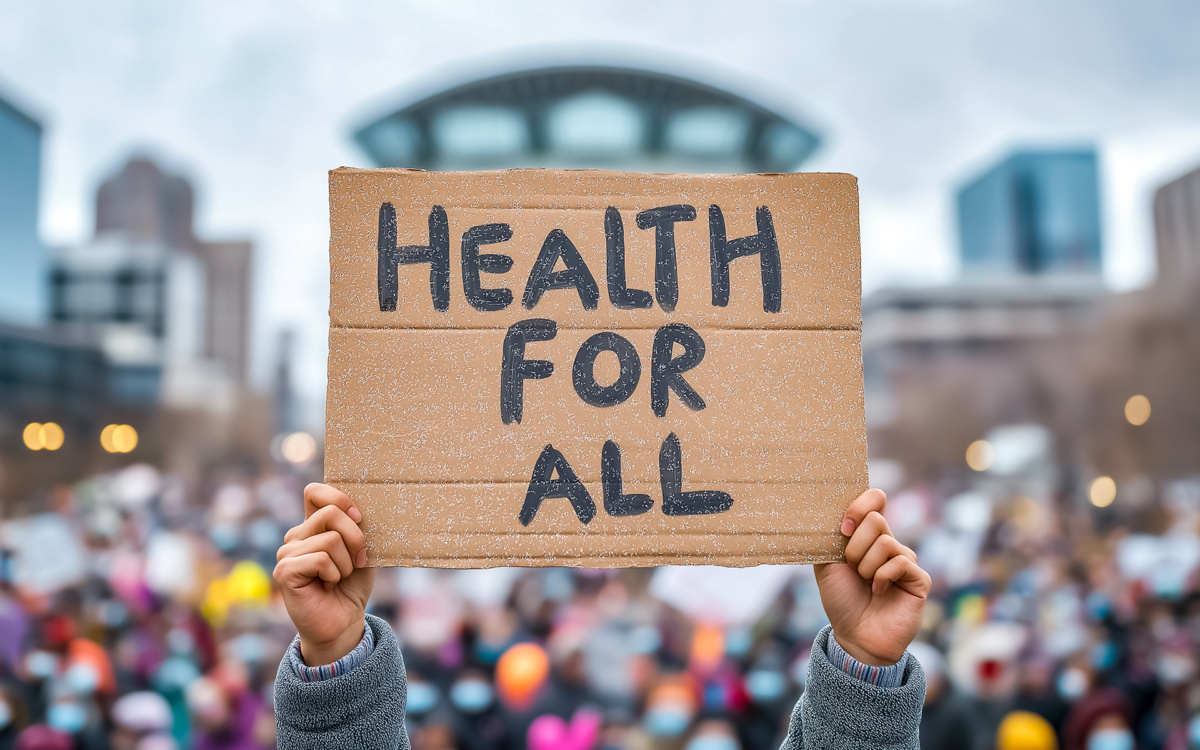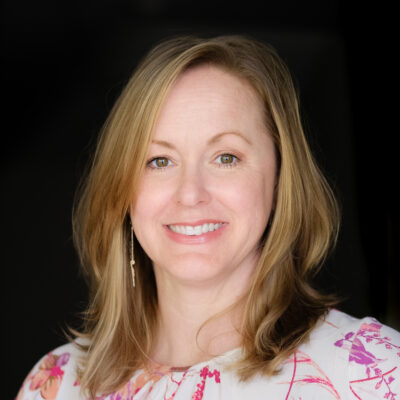
The quest for universal healthcare in Washington state
This story appears in the November 2025 edition of The Washington Nurse.


The conversation around universal healthcare has felt even more pressing and prevalent since cuts to Medicaid were made by Congress and the Trump administration.
At the 2025 Washington State Labor Council (WSLC) Convention in July, delegates adopted a resolution in support of single-payer healthcare, and there are multiple organizations and coalitions working on this issue: Health Care for All, Whole Washington, Health Care is a Human Right, and the Universal Health Care Commission.
This article provides a high-level overview of the various coalitions, how they define universal healthcare, their goals and strategies, how they may partner with other coalitions, and where their work overlaps. If you are interested in doing a deeper dive, there are links for you to learn more.
First, let’s define the terms. Universal healthcare and single-payer healthcare are slightly different even though many use the terms interchangeably. The World Health Organization defines universal health coverage (UHC) as “all people having access to the full range of quality health services they need, when and where they need them, without financial hardship.” UHC can be implemented in a number of different ways. Some of those include a multi-payer system, in which a mix of private and public insurers provide healthcare coverage for all, much like the direction Washington state was headed prior to the Medicaid cuts.
Another model would be a single-payer system. Single-payer healthcare is a system in which one entity — a single payer — pays for all covered healthcare costs. In countries that have single payer, like Canada, the government is usually the payer. Proponents of a single-payer system argue that because there are fewer entities involved in the healthcare system, the system can avoid an enormous amount of administrative waste, and those savings can be spent directly on patient care. One approach to single-payer health care that has been supported by many advocacy groups is Medicare for All, which—as the name suggests—would extend the Medicare program (which currently covers older and permanently disabled Americans) to everyone.
To be clear, a single-payer system is a type of universal healthcare system, since all members would have access to health coverage and the same payer paying those healthcare costs. Some may say, for example, that the Affordable Care Act (ACA) brought the United States closer to a universal healthcare system, but since there are multiple payers (commercial, Medicaid, Medicare, etc.), it is not a single-payer system.
WSNA has been engaged with each of the organizations and efforts laid out in the table below in a variety of different ways from attending meetings to supporting various pieces of legislation put forth by some of these groups. WSNA will continue to engage in the topic of universal health coverage and monitor efforts to help accomplish this goal. WSNA will likely participate in viable legislative options as coalition work advances in the State Legislature. For more information on this topic please feel free to reach out to WSNA Government Affairs staff at gov@wsna.org.
Who are they?
| Healthcare for All | Support Universal Healthcare Works on Medicare Savings Program, which provides financial assistance to those on Medicare who meet the eligibility requirements Formed in 1994, the oldest grassroots organization in Washington solely dedicated to universal healthcare. Two-thirds of Board of Directors are healthcare professionals who provide expert guidance and insight into the development of public policy |
| Whole Washington | Grassroots movement of healthcare professionals and volunteers that endorse state and national efforts that work to make universal healthcare a reality. Now have developed a bill called the Washington Health Trust (HB 1445/SB 5233) |
| Health Care is a Human Right (HCHR) | Grassroots coalition of community-labor organizations since 2013, which includes Health Care for All and Whole Washington, aiming to secure the fundamental right to healthcare for all individuals in Washington state and our nation. Committees include:
|
| Universal Health Care Commission (UHCC) | To increase access to quality, affordable healthcare by streamlining access to universal health coverage Established from the passage of SB 5399 (2021), started in 2022, and housed under the Health Care Authority (WA’s Medicaid agency) and Fifteen commission members: Six members are appointed by the Governor. One member from each of the two largest caucuses of the Senate. Additional members can include Secretary of Dept. of Health, Administrator of Health Care Authority, Chief Executive Officer of Washington Health Benefit Exchange, Insurance Commissioner, and Director of Office of Equity. |
What are they aiming to do?
| Healthcare for All | Achieving universal, publicly funded healthcare. |
| Whole Washington | Pass the Washington Health Trust (HB 1445/SB 5233). The Trust is a framework for the first statewide, publicly funded, not-for-profit healthcare system in the U.S. Instead of many private insurance companies and multiple programs, one public trust will pay the healthcare expenses of Washington residents. |
| Health Care is a Human Right (HCHR) | Secure the fundamental right to healthcare for all individuals in Washington and around the nation. Make sure we have affordable and accessible healthcare. |
| Universal Health Care Commission (UHCC) | Make the healthcare system more accessible by increasing access to quality, affordable care. Prepare the state for the creation of a healthcare system that provides coverage and access for all Washingtonians through a unified financing system. |
What do they mean by “universal healthcare”?
| Healthcare for All | Coverage designed and administered by the state. Care delivered by private and public providers, clinics and hospitals. Financed through a unified single-payer system. From cradle to grave, all Washingtonians covered by state, federal, or tribal programs. |
| Whole Washington | Statewide Publicly funded Not-for-profit healthcare system Your provider determines what procedures, therapies, and medications are essential to your health. The Washington Health Trust covers them: click to see coverage. |
| Health Care is a Human Right (HCHR) | Universal access: universal means everyone has access to healthcare. Affordable: there are no financial barriers. Available: full range of benefits as well as facility and services – including patients’ free choice of trained professionals – are available to all. |
| Universal Health Care Commission (UHCC) | Provides coverage and access for all Washington residents through a unified financing system once the necessary federal authority has become available. |
How are they doing this?
| Healthcare for All | Legislative advocacy. Big wins include securing money for setting up the Universal Health Care Commission within our state’s Medicaid agency. See some of their wins on their website: hcfawa.org |
| Whole Washington | Legislative advocacy. Supporting organizations and candidates who support single-payer, universal healthcare. Learn more about their plan and strategies by visiting their website: wholewashington.org/ |
| Health Care is a Human Right (HCHR) | Put together a policy agenda/framework. Support and convene other groups working towards similar goals. |
| Universal Health Care Commission (UHCC) | Hosting committee meetings, reviewing, and analyzing background materials, and submitting reports to Legislature and Governor. Subcommittee called the Financial Technical Advisory Committee to provide guidance and options for the Commission’s development of a universal healthcare system, supported by unified financing in Washington. Can collect and use data from the Health Care Cost Transparency Board. |
Learn more!
| Healthcare for All | hcfawa.org |
| Whole Washington | wholewashington.org |
| Health Care is a Human Right (HCHR) | hchrwashington.org |
| Universal Health Care Commission (UHCC) | hca.wa.gov/about-hca/who-we-are/universal-health-care-commission |
